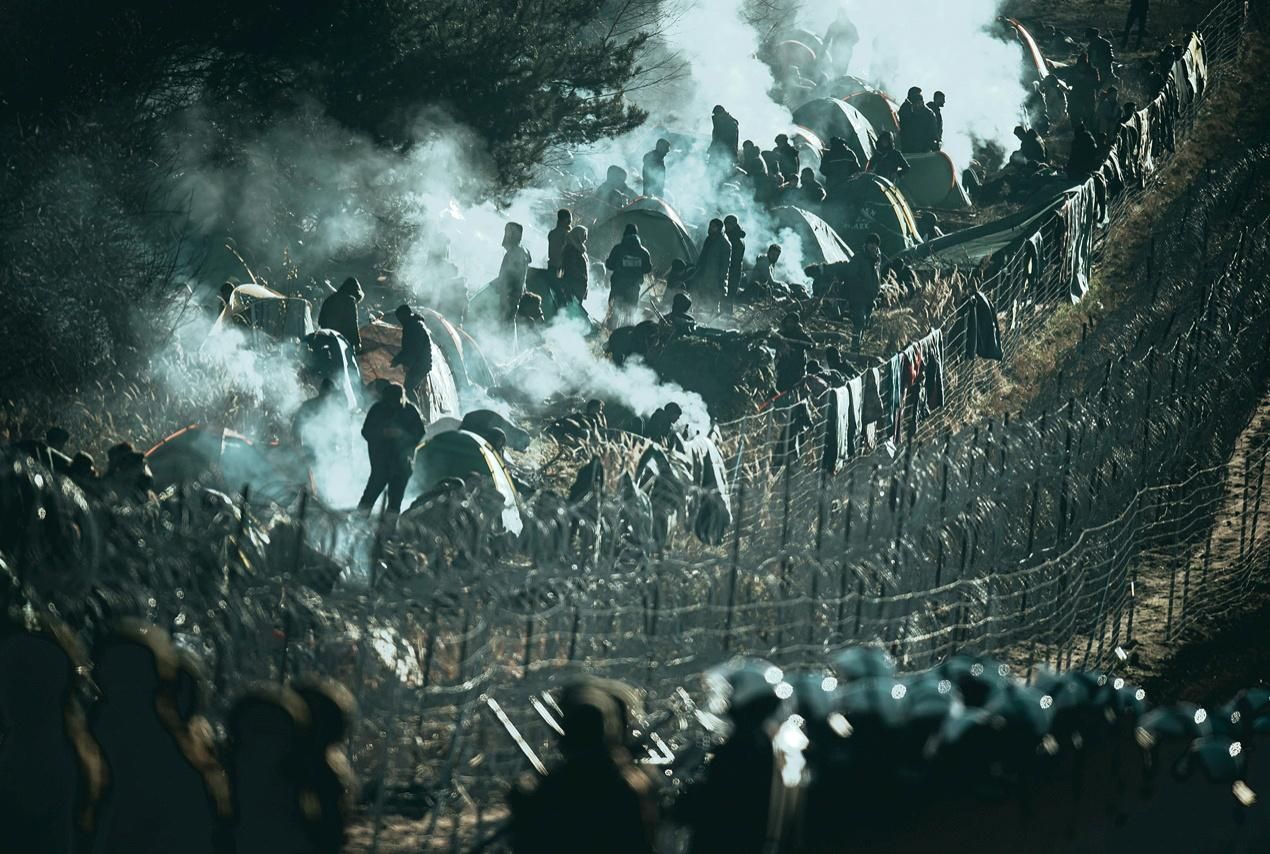Migrants suffer as Eastern European deadlock deepens. The stalemate at the Polish-Belarusian border continues, with reports that several migrants languishing in freezing temperatures in the forest have recently frozen to death while waiting for asylum. The EU says Minsk is using the migrants as a political weapon against Brussels international heavyweights have intervened in recent days to try t chart a path forward. German Chancellor Angela Merkel – who's just days away from her retirement — has been appealing to Russian President Vladimir Putin to use his sway with Minsk to resolve the dispute. Putin, who's no doubt enjoying his clout and leverage, says that Brussels needs to negotiate directly with Belarusian President Alexander Lukashenko – but that has been a non-starter so far because the EU has cut off communication with the strongman since his rigged re-election last year. Feeling emboldened by the standoff, Lukashenko doubled down Thursday, saying that if the bloc slaps fresh sanctions on him, he would cut off the flow of gas that flows from Russia to Western Europe via Belarusian territory. That's a scary prospect indeed for a Europe which is already dealing with painful gas shortages as winter approaches.
US and China announce a climate "deal." It's hard to get the US and China to agree on anything these days, but climate is one area where cooperation has always seemed at least possible. In that spirit, both sides announced on Wednesday a rare joint pledge to work together on slashing carbon emissions. The statement itself was light on details on how they'll actually do just that, but it's still a big deal. Why? For one thing, the two countries are the world's top polluters, accounting for just under half of all global emissions. For another, as the two largest economies, the US and China can muster the financial muscle needed to de-carbonize themselves and help the rest of the world do it too. Even more importantly, only the US and China together have the political power to get other countries to get on board with their plans. But given that there's a host of other prickly issues in the broader US-China competition, the biggest threat to future US-China cooperation on climate is how far apart they are on pretty much everything else.
Bolsonaro the centrist? After two years without belonging to any political party, Brazil's anti-establishment, far-right President Jair Bolsonaro has decided to join the Liberal Party, one of the small parties that form the establishment Centrão ("Big Center") coalition he's been courting for over a year. Bolsonaro — who quit a right-wing party back in 2019 and has since then failed to set up his own — hopes that the centrist platform will help him appeal to more moderate voters in next year's presidential election. The president also needs political cover from multiple open probes against him in the courts and Congress, including a criminal investigation in the Senate for mishandling COVID. But mostly he can't actually run for re-election without being backed by a party, big or small. With his approval rating in the tank, Bolsonaro faces increasingly long re-election odds against his likely competitor and biggest nemesis, former president Lula da Silva.
